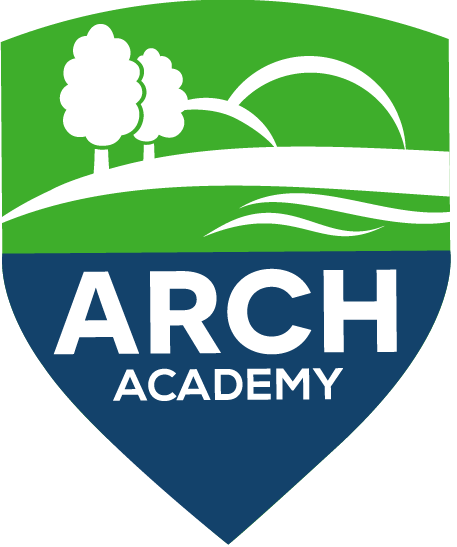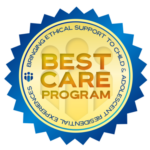Teen Addiction Treatment For
Chronic Relapse
Even if a teenager has completed a youth rehab program, they might return to a life of substance use multiple times. Learn the risk factors, signs, and treatment of chronic relapse in teens.
ABOUT CHRONIC RELAPSE IN TEENS
If your son or daughter has developed an addiction and continues to relapse, it is not your fault. Chronic relapse is exceptionally common among teenagers.
Many teens begin using drugs and alcohol due to pressure from peers. They may want to fit in with a new crowd or prove themselves to an existing friend group. While some teens grow out of this period of experimentation, others find themselves caught up in the cycle of addiction.
Addiction is characterized as a chronic, progressive disease. This means that it is ongoing for a person’s lifetime, and if left untreated, it will become more severe. For most young adults, time in a treatment program is enough to provide them with a new start. However, others will begin a pattern of chronic relapse: these are teens who drink or use drugs again even after treatment has concluded.
Why are some teens more likely to go through chronic relapse?
RISK FACTORS FOR RELAPSE AMONG YOUNG MEN
Several factors can place teenagers at risk for a recurring pattern of relapse – those in this demographic group are particularly vulnerable. Even after a successful round of treatment, these things may influence an adolescent’s likelihood of drinking or using drugs again.
To put it simply, teenagers are at higher risk because they are more impressionable. In middle school and high school, peer acceptance and fitting in matter more than anything else. This is why the stories and experiences of others can quickly result in a pattern of substance abuse, even after a teen has already received treatment.
Common circumstantial issues that may drive a teenager in recovery back to substance abuse include:
- Moving to another place away from friends
- Ending a romantic relationship or close friendship
- Peer pressure from friends or classmates
- Lacking support at home (or at school)
- Periods of high stress
- Poor coping skills
- Their parents divorcing, especially if the process is not amicable
- The death of a close friend or loved one
There are also behavioral characteristics and personality traits that can contribute to chronic teen relapse. These include co-occurring mental illness, learning disabilities, and a lack of impulse control. Unless these factors are also adequately addressed, it can be difficult for young people to guard their sobriety after treatment.
MARIJUANA RELAPSE
Marijuana is the most widely used drug in the world. It is also the substance of choice for many teenagers. Even after they receive care, it is not rare for a relapse to occur. This is because marijuana is widely available, has depressant properties, is more popular, and is considered “less dangerous” than other drugs.
The relapse rate for cannabis use disorders is 6.63% over the first three to four years. Two factors increase the relapse risk for teens who have received treatment for marijuana addiction:
- A diagnosis of major depressive disorder is correlated with higher risk of relapse.
- A history of conduct disorder also increases one’s risk.
However, research also shows that spending a longer amount of time in treatment can lower a person’s relapse risk. At ARCH Academy, we provide a treatment solution for lasting sobriety from cannabis use disorder.
SIGNS OF RELAPSE
A key element of recovery support is learning to identify the signs of relapse before it occurs. People of all ages experience this in multiple stages – emotional, mental, and physical. Parents should take active measures to provide additional help to their child if any of the below symptoms begin to surface.
Early warning signs of chronic relapse in teens include:
- Withdrawing from the family
- Refusing to participate in recovery programming
- Speaking fondly about their past drug use or drinking
- Lying or becoming deceptive
- Losing interest in extracurricular activities
- Displaying strong emotions
- Struggling academically
- Reconnecting with friends who drink or use drugs
If you are worried about your son or daughter’s risk of relapse, look no further. ARCH Academy can provide effective treatment tailored to your child’s needs.
HELP FOR TEENS EXPERIENCING CHRONIC RELAPSE
At ARCH Academy, we have helped thousands of teen boys to find fulfilling lives outside of addiction and substance dependency. Our program is a proven, affordable way to find recovery in Tennessee.
Our teenage relapse prevention programming includes:
- Medically supervised detoxification
- 12-Step education
- One-on-one therapy
- Group sessions
- Family therapy and education
- Dual diagnosis (treatment for depression, anxiety, or other mental illness)
- Individualized treatment plans
- Experiential therapies (art therapy, music therapy)
- Ropes courses and equine therapy
- Spirituality
- Psychiatric care
- Trauma-informed treatment
We are a local center specializing exclusively in the treatment of teenagers who are dealing with alcoholism, marijuana dependency, and other substance use disorders. Through clinically advanced models and adventure-based programming, we have created an approach optimized for long-term recovery.
TEEN RESIDENTIAL TREATMENT IN TENNESSEE
At ARCH Academy, we understand the difficult choices that parents face when trying to help their children. When you direct your son or daughter to a residential program, you are giving them the gifts of freedom, evidence-based care, and a lifelong education.
Contact us when you are ready to learn more about our addiction treatment and recovery services.




